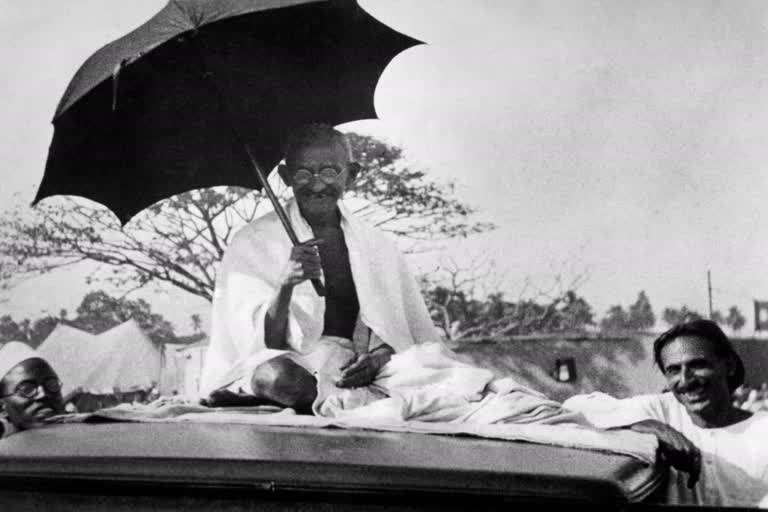New Delhi: Mahatma Gandhi had expressed the desire to be born in his next birth to Harijan parents as a girl to personally suffer their life of injustice, indignation and exploitation at the hands of caste Hindus. If his desire were fulfilled, he would have found the conditions of Dalits in his home state of Gujarat even more oppressive than in the last century.
In the last 23 years as many as 524 people belonging to the Dalit community were killed by upper caste Hindus in the state. In the same period, 1,133 Dalit women were raped and over 2,100 people of the community grievously injured. In all over 38,600 cases of serious crimes against Dalits were registered during the period.
Gandhiji’s desire to be born into a Harijan family as a girl is understandable. From his childhood and throughout his life, Gandhiji opposed the scourge of untouchability that has plagued the Hindu society. He had defied even his mother’s stern warning against touching the scavenger who used to clean their toilet, even though the family of orthodox Vaishnavs scrupulously practiced untouchability like any other upper caste of Hindu society.
Gandhiji saw untouchability as the greatest stigma on the Hindu religion. He even challenged scholars of Sanskrit scriptures to show him if any of the Vedas and Puranas had advocated untouchability. “I would reject these Vedas and Puranas if any of them supported untouchability,” he said.
The Mahatma believed that members of the upper castes must do penance for their and their ancestors’ sins by doing the work of scavenging, disposing off carcasses of cows, work in tanneries and clean latrines. For the removal of untouchability, Gandhiji encouraged inter-caste marriages and declared he would attend only those marriage ceremonies in which either the groom or the bride was a Harijan while the spouse was from the upper caste.
He named his journals, Harijan (English), Harijan Bandhu (Hindi) and Harijan Sevak (Gujarati).As the editor of Harijan, Gandhiji’s secretary Mahadev Desai would lead the batch of volunteers from the Sewagram Ashram to clean the night soils of nearby village Segaon every day. Wrote Pyarelal, who succeeded Desai as Gandhiji’s secretary after the latter’s death about the editor of the weekly Harijan:
“Those who saw him (Mahadevbhai) issue forth at the head of the bucket-and-broom brigade from Maganwadi, day after day and week after week, in the midst of heavy pressure of work, could understand his passionate advocacy of the cause of Harijans and village uplift in Gandhiji’s weeklies. Not only did it enable him to present Gandhiji’s ideas on these subjects with force and conviction through this writings, but his personal example fired workers with a passion for these branches of Gandhiji’s activities.
